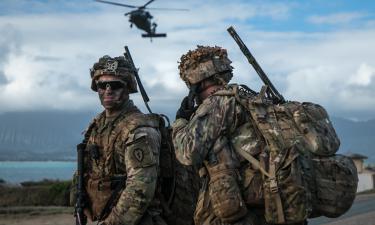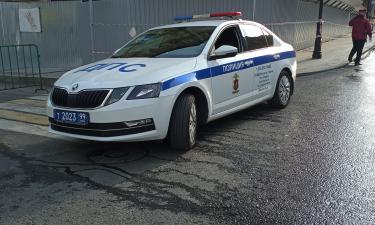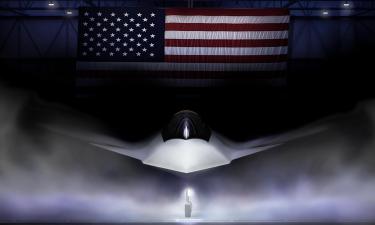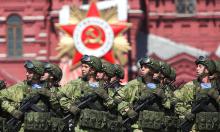Russia-US Bilateral meeting
Prior to the G8 Summit, the leaders of the Russian Federation and the United States of America met in a cordial atmosphere to discuss bilateral relations. On the agenda for the talks were the issue of nuclear energy, nuclear proliferation, the fight against global nuclear terrorism and Russia’s access to the WTO, while the situation in the Middle East entered the agenda also through need and not by design.
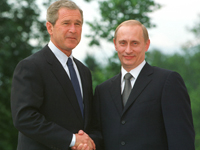
The cordial nature of the talks was highlighted by the Kremlin and by President Bush, who thanked Vladimir Putin for his hospitality. Both Presidents agreed on most issues, although the difference of wording over the Middle East crisis underlined differences of approach while the sticky issue continues to be the WTO.
The peaceful uses of nuclear energy
In their joint statement after the talks, Vladimir Putin and George Bush stated that “reliable and sufficient energy supplies are the cornerstone of sustainable economic development and prosperity for all nations,” agreeing also that “today, nuclear energy is a proven technology for providing reliable electric power without emission of greenhouse gases and is an essential part of any solution to meet growing energy demand”.
Both countries have proposed initiatives to guarantee access of all nations to nuclear energy, Russia proposing a system of international nuclear treatment centres to render nuclear fuel services under IAEA safeguards, while the USA proposes the Global Nuclear Energy Partnership to develop nuclear technologies – but in either case, the nations developing such technologies would not enrich or reprocess spent fuel.
Countering nuclear proliferation
The meeting produced a joint statement on the concrete cases presented by Iran and the DPR Korea, while both Presidents reaffirmed their commitment to “the vital role of the Nuclear Proliferation Treaty…and the importance of the IAEA in implementing safeguards” and stressed that both countries are working for unity among the UN Security Council members.
Both Presidents expressed their “concern” that Iran has not responded in a serious manner to proposals made by the P-5 countries and Germany on its nuclear programme and urge the DPR Korea to return to a moratorium on ballistic missile tests.
The need to comply with nuclear safeguards obligations was stressed as was the great backing in the international community for the Proliferation Security Initiative, a contribution to counter trafficking in WMD.
The fight against global nuclear terrorism
Understanding that “nuclear terrorism…is one of the most dangerous international security issues we face”, the Presidents of the Russian Federation and the USA highlighted their commitment to combat it, launching the Global Initiative to Combat Nuclear Terrorism, which will fight against the production, provision and transportation of such equipment or substances across the supply line.
Russia’s adhesion to the WTO
Both Presidents were keen to stress that the deal is almost there, George Bush diplomatically stating that he has to forge a deal which will pass in the US Congress, especially on the issue of intellectual property rights. President Putin declared that the two countries will continue to work together on this deal and that Russia will continue to safeguard its economic interests, which he described as “the interests of our developing economy”. Despite the “significant progress” mentioned by some analysts, no concrete progress is expected in the near future, according to Russia’s chief negotiator at the WTO talks, Maxim Medvedkov.
The Middle East
The Middle East was always going to be on the sidelines of any Summit or bilateral meeting due to the fact that Russia and the USA are part of the Quartet (with the UNO and E.U.) but the crisis which escalated this week was not foreseen and the level of importance of this region on the talks in St. Petersburg has risen as exponentially as it has been unexpected.
In declarations about the crises, a clear difference of approach was visible, George Bush putting the blame on Hezbollah firing rockets into Israel and capturing Israeli soldiers, without mentioning the act of slaughter in Gaza, where military hardware sold by the USA to Israel is being used against civilians in terrorist attacks. President Putin adopted a more balanced approach, calling for a “balanced” response by Israel: “We believe Israel's concerns are justified, but the use of force must be balanced," he stated on Saturday morning. However, the fact that both countries shared the same concerns was highlighted by the diplomats surrounding the meeting.
With the frostiness surrounding such meetings during the Cold War now long thawed, Russia and America can come together as friends, using their considerable material and human resources to approach the world’s more pressing needs while at the same time defending their national interests with firmness and pride.
Timothy BANCROFT-HINCHEY
PRAVDA.Ru
Subscribe to Pravda.Ru Telegram channel, Facebook, RSS!
